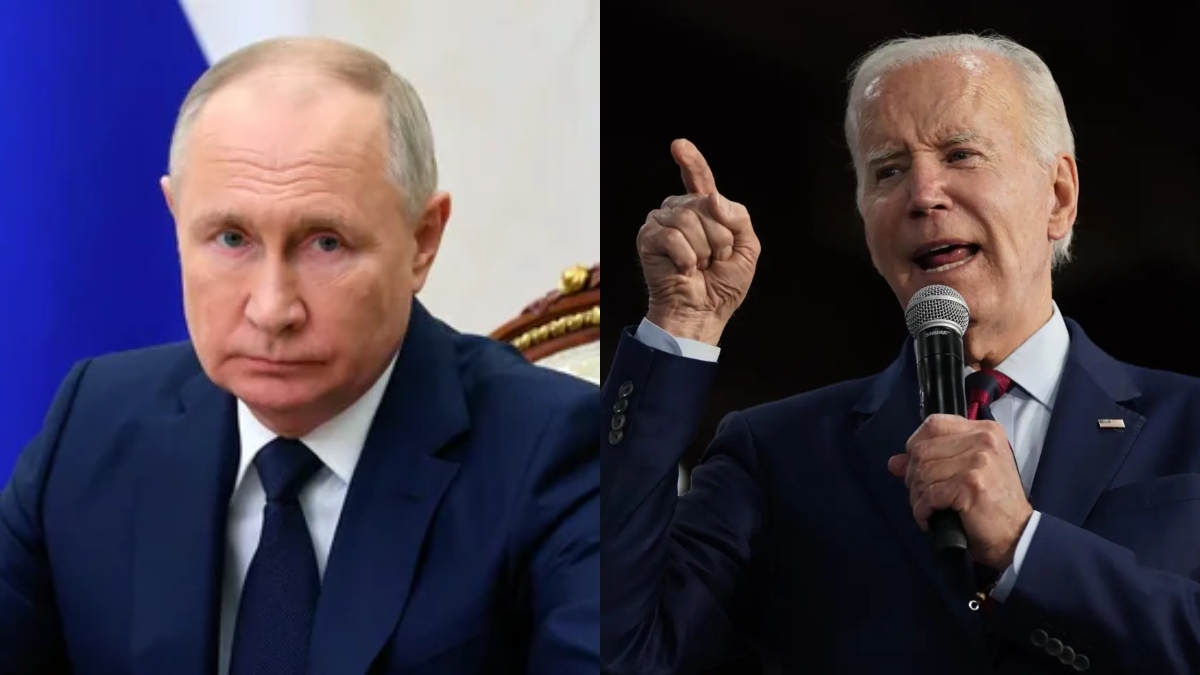 |
|
The recent imposition of sweeping sanctions by the Biden administration against Russia marks a significant escalation in the ongoing geopolitical conflict. These sanctions, announced as a last-minute measure, are primarily aimed at crippling Russia's energy sector, a vital component of its economy and a key source of funding for its military operations in Ukraine. The stated goal is to hinder Russia's ability to wage war and to support Ukraine's ongoing struggle for independence. The breadth of the sanctions is notable, encompassing not only key Russian energy companies but also entities in other countries, including two Indian firms, allegedly involved in facilitating Russia's energy exports. This inclusion of foreign companies highlights the international reach of the sanctions regime and its intent to stifle any support for Russia's actions.
The sanctions specifically target Rosatom, Russia's state atomic energy corporation, a global leader in nuclear energy technology. Rosatom's swift and vehement condemnation of the sanctions as "unlawful" and a form of "unfair competition" underscores the significant impact of these measures. The targeting of Rosatom's senior officials further demonstrates the administration's intention to inflict substantial damage on Russia's strategic interests. Beyond Rosatom, the sanctions also affect prominent Russian oil producers like Gazprom Neft and Surgutneftegas, as well as insurance companies and entities involved in the operation of shadow fleet vessels. The comprehensiveness of this approach suggests a concerted effort to disrupt multiple facets of Russia's economic activity and logistics.
President Biden's statements accompanying the announcement highlight the strategic reasoning behind the sanctions. He directly linked the measures to Russia's military actions in Ukraine, asserting that the sanctions are designed to severely impact the Russian economy and restrict Putin's ability to continue the war. While acknowledging the potential for a slight increase in gas prices in the United States (estimated at USD 0.03 to USD 0.04 per gallon), Biden downplayed this consequence in comparison to the broader aim of crippling the Russian war machine. He emphasized the economic and political pressures mounting on Putin, suggesting the Russian president is in a precarious position domestically. This assessment underscores the belief within the Biden administration that the sanctions, coupled with other international pressure, will ultimately weaken Russia's capacity for continued aggression.
The inclusion of two Indian companies, Skyhart Management Services and Avision Management Services, in the sanctions list raises interesting questions about the international ramifications of this action. It indicates a willingness by the US to target entities outside of Russia that are deemed to be complicit in supporting Russia's war effort. This broad approach potentially risks strained diplomatic relations with countries that have strong economic ties with Russia. However, the administration likely believes that the strategic benefits of crippling Russia's energy sector outweigh the potential diplomatic costs. The long-term effects of these sanctions will undoubtedly depend on various factors, including the response of Russia and other nations, and the effectiveness of enforcement mechanisms.
The ongoing conflict in Ukraine and the international response in the form of sanctions represent a complex and evolving geopolitical situation. The effectiveness of these sanctions will require careful monitoring and assessment. The economic and political ramifications extend far beyond Russia's borders, influencing energy markets globally and shaping relationships between countries with differing interests in the conflict. The future will undoubtedly see further developments and responses as the participants in this conflict react and adapt to the unfolding circumstances. The sanctions are not just an economic tool; they are a part of a broader strategy aimed at altering the dynamics of the conflict and achieving specific foreign policy objectives.
Source: Putin is in tough shape: Biden slaps last-minute sanctions on Russian companies, Rosatom reacts
